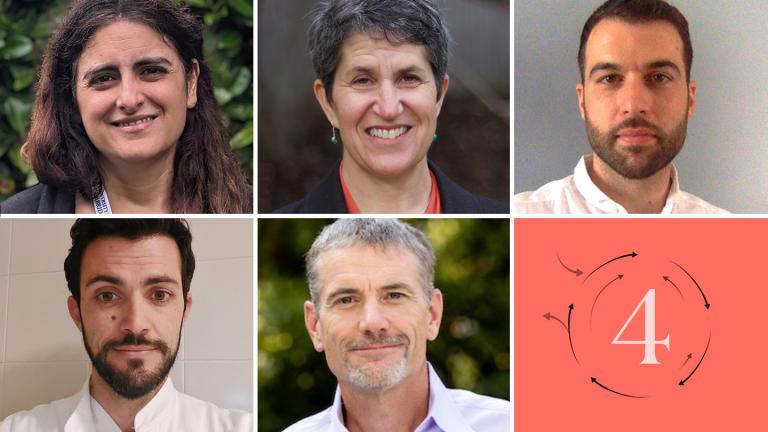Module 4 of Adaptive Clinical Trial Designs series is now live
The module introduces response adaptive randomisation (RAR) and covariate adjusted response adaptive (CARA) randomisation designs. endTB, I-Spy 2, REMAP-CAP and ATTACC are discussed as case studies for these adaptive designs.
You can now access Module 4 of Ecraid's six-part training series on adaptive clinical trial designs. Enrolling in the course is free of charge and only requires a (free) myERS account.
The module introduces response adaptive randomisation (RAR) and covariate adjusted response adaptive (CARA) randomisation designs. Our speakers explain why randomisation is needed in clinical trials, and then expand on how it can be adapted based on patient responses (and their covariate values). They demonstrate the designs' benefits through case studies.
We are thrilled to collaborate on this module with Sofia Villar, Carole Mitnick, Matteo Cellamare, Lorenzo Guglielmetti, and Scott Berry (pictured below).

4.1 Introduction to RAR and CARA
This presentation gives an overview of the use of response-adaptive randomisation (RAR) and covariate-adaptive response-adaptive (CARA) randomisation. We start with the reasons for using randomisation as an assignment procedure in clinical trials and the different ways to implement it. Diving deeper into the topic, we discuss constructing a design that adapts randomisation (or assignment) based on the observed data, touching upon different types of RAR and the high-level statistical issues that RAR can introduce. Finally, we introduce CARA and its advantages.
Presented by Dr Sofia Villar, Programme Leader Track at MRC Biostatistics Unit.
4.2 RAR case study: endTB
The endTB trial was a Bayesian response-adaptive trial of five 9-month regimens for the treatment of rifampin-resistant/multidrug-resistant TB compared to the WHO standard of care (18-month regimen). Adaptation of randomisation relied on the posterior probability of non-inferiority of interim treatment responses, despite the absence of a validated surrogate marker for cure. The trial identified three regimens (BLMZ, BCLLfxZ, BDLLfxZ) that had non-inferior (BLMZ had superior) efficacy and similar or better safety compared to the standard of care.
Presented by Dr Carole Mitnick, Professor of Global Health and Social Medicine at Harvard medical school, Dr Matteo Cellamare, Biostatistician at MedStar Health, and Dr Lorenzo Guglielmetti, Director of the endTB project.
4.3 CARA case studies
The last part of this module focuses on trials that used CARA: the I-Spy 2, REMAP-CAP, and ATTACC trials. CARA can be a powerful tool when heterogeneous treatment effects are explored and there are multiple treatment options, as is the case in these examples and many new platform trials.
Presented by Dr Scott Berry, President and Senior Statistical Scientist at Berry Consultants.
Module 5 will be released on 30 September 2024 and will dive into platform trials and personalised randomised controlled trials.
While waiting, please fill out our 3-minute questionnaire on participants' wishes for additional training on adaptive trial designs. Thank you!